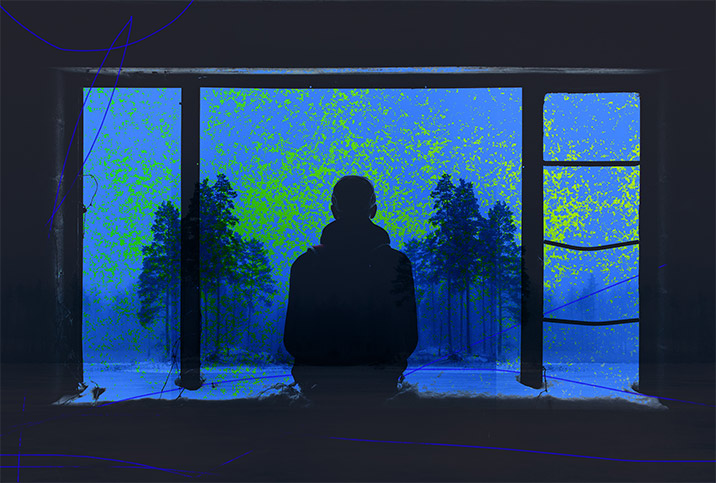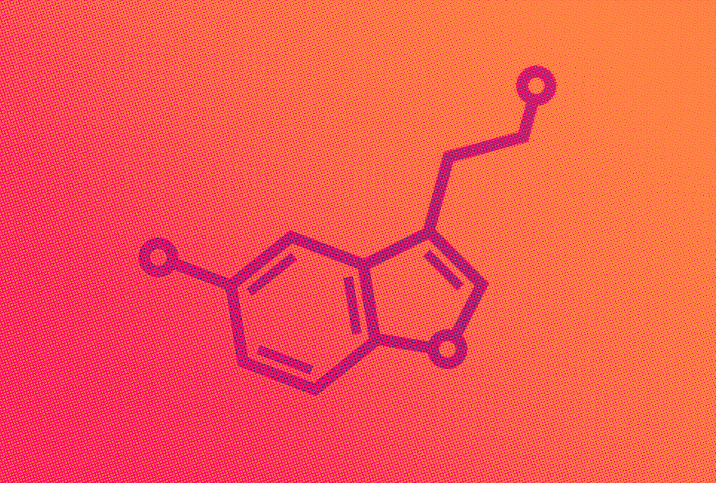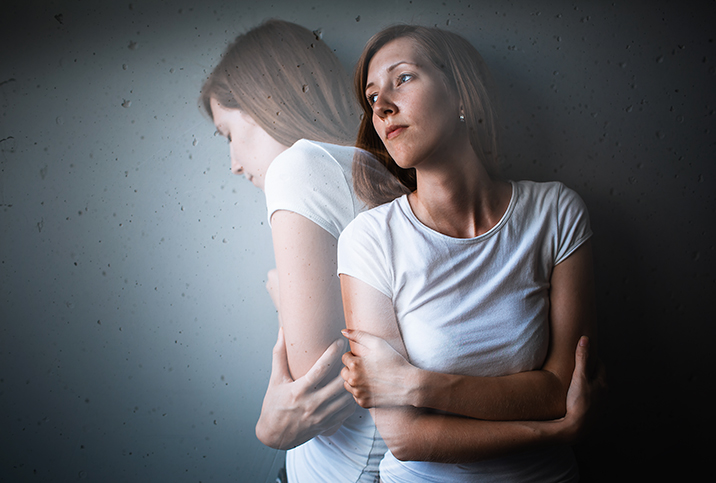What Are the Benefits of Sadness?

Key Points
- Sadness may have evolved to help humans disengage from risky or fruitless situations.
- In modern times, sadness can help regulate behavior, foster personal growth, strengthen relationships and help individuals identify their values.
- It's important to understand the context of painful feelings.
Sadness, grief and painful emotions are vital components of the human condition. For proof, look no further than humanity's works of art and literature.
"If you read old texts—from epics in Sanskrit to 'The Iliad'—the same emotions are described in vivid detail," said Jerome C. Wakefield, Ph.D., professor of psychiatry and social work at New York University. "They are universal across cultures. You even see them in other mammals."
Humans did not evolve to be consistently happy. Rather, evolutionary psychologists propose that our species developed a range of emotions—many that are painful— to help us adapt and respond to environmental stimuli.
"There is broad agreement among researchers that emotions serve important functions," said Peter Koval, Ph.D., an associate professor of psychology at the Melbourne School of Psychological Sciences in Australia. "Emotions help guide our thoughts and actions in useful ways. They may influence our perceptions of the environment, causing us to pay attention to certain features over others, changing how we process information and ultimately increasing the likelihood of behaving in some ways rather than others."
Ultimately, emotions increased our evolutionary ancestors' odds of surviving and reproducing, he added.
So why did humans evolve to feel sadness?
Evolutionary psychologists are still scratching their heads over the evolutionary purpose of sadness, according to Wakefield—but they have plenty of theories. The emotion may have evolved to help humans disengage from risky or fruitless situations, some researchers believe.
"If you ignore when things are going bad and you stay in the fray in your usual way, you're likely to get squelched by a new reality that you haven't adapted to," he said.
Koval noted that sadness can also help us learn from our mistakes.
"Sadness seems to promote slower, more careful, information processing that may help to understand why a loss or failure has occurred and help us to avoid a similar situation in the future," Koval said.
In certain instances, sadness can help facilitate social support. Tears and other physical expressions of sadness communicate to others that we may need help.
"Think of how you'd respond to a child sitting alone at the entrance to a shop if you perceive her as feeling sad versus happy," he said.
Recommended
- The Physical Effects of Depression: Depression can affect your body as much as your brain, so treat all aspects of the disorder.
- Your Libido With Depression: Depression can leave you feeling unmotivated and sluggish—even in the bedroom.
- Many LGBTQ+ People Are Experiencing Medical Gaslighting, Study Says: LGBTQ+ discrimination in healthcare is prevalent. More so than for cishet patients.
What are the psychological benefits of sadness?
Sadness isn't just an evolutionary relic, there are also modern benefits to feeling sad.
"Sadness helps to regulate behavior by reducing our motivation to expend energy or effort in the face of loss or failure. This is useful in environments that are not conducive to achieving our goals," Koval said. "For example, after a long, unsuccessful search for some valued object, one may feel sad, which promotes the cessation of that behavior to conserve energy. There's no point in endlessly persisting with an action that has so far been fruitless. It's useful to stop and re-assess, and feeling sad can help to ensure we do exactly that."
Bertrina Olivia West Al-Mahdi, Ph.D., a psychologist in Berkeley Lake, Georgia, said that sadness also plays an important role in helping us grow as an individual or in our relationships. She noted that the theory of post-traumatic growth (PTG) refers to positive change—such as a new appreciation for life, a sense of personal strength or a focus on helping others—that can follow adversity, trauma or challenges.
In addition, she explained how sadness can benefit our relationship with others.
"Experiencing sadness together can bring closeness and growth in a relationship with another person," she said. "You can lean on one another and discover that you are not isolated or alone."
Koval added that he thinks sadness can teach us about what we value.
"Experiencing sadness in the face of loss helps us identify who and what is most important to us in our lives," he said. "It's a bit like the old adage: 'You don't know what you've got till it's gone.'"
Sadness versus depression
"People typically experience sadness when they evaluate a situation as involving a loss of something or someone important, and usually when that loss is perceived as permanent or irreversible," Koval said.
Like sadness, depression may arise in response to loss. However, unlike normal sadness, depression may persist long after the triggering event and in spite of improved circumstances.
"When persistent sadness is accompanied by other symptoms—for example, you notice changes in appetite, concentration problems or a reduction in the ability to experience pleasure—we label this 'depression,'" Koval said.
Compared to sadness, depression can have a more pronounced and lasting impact on your sex life and sexual desire. Decreased libido is one of the most common symptoms of depression, as are difficulties with arousal and delayed or absent orgasm.
Another hallmark symptom of depression is a feeling of purposelessness and low self-worth.
"With pathological depression, unlike grief, you feel a deep, profound sense of worthlessness and your self-esteem goes way down," Wakefield said.
What Is It Like to Date an AI Chatbot?: For some people, companion chatbots offer thrilling possibilities for romantic relationships. AI companionship can fill the emotional needs of people dealing with loss, addiction or social anxiety. Find out more.
How to distinguish feeling sad from being depressed
To identify sadness versus depression, Wakefield recommended considering the context of your painful feelings. For instance, are you grieving a loss or hardship in your life? He noted that such "loss" might not always be as clear to us as it was to our ancestors.
"Whereas things might have been very concrete back when we were first evolving, now we are sophisticated cognitively so a lot of things symbolically can be losses for us," he said.
He gave the example of losing money in the stock market or getting fired from your job as very real reasons you might grieve that were never faced by our primate cousins.
How to deal with sadness
The main problem with conflating normal sadness with depression is that the latter tends to be treated with antidepressants, Wakefield explained.
"A large number of the people who are going in for help with sadness probably don't need medication," he said.
He cited what he called "mind-boggling statistics" of 13 percent of people older than 12 taking antidepressants within the last month, and 25 percent of women aged 60 and older have been prescribed antidepressant medication.
But, if not medication, what do people experiencing sadness need?
"They need somebody to talk to," Wakefield said. "They need to think through their life, the context and what they could do more proactively to change their situation."
Al-Mahdi suggested that it's all about accepting—as opposed to suppressing—difficult emotions such as sadness.
"People tend to try to resist feeling sad," said Al-Mahdi. "In order to get through daily life, we don't allow time to experience sadness."
However, ignored sadness doesn't disappear. It simply continues to accumulate until things reach a tipping point, she explained.
For her clients, she uses the example of a prank can of worms to illustrate the experience of suppressing.
"You have these worms that you keep pushing down," Al-Mahdi said. "When someone opens the can, all the worms spill out."
In addition to failing to banish unwanted feelings, suppressing sadness can create additional physical and psychological problems.
"There's a lot of research on the downsides and harms of suppressing the outward expression of sadness and other emotions," Koval said. "Suppression seems to increase strain on the physical body, impair memory for details about events that occur during the suppression and reduce the quality of our social interactions."
Instead of resisting, medicating or denying, Wakefield recommended that people should address sadness head-on.
"Don't be afraid," he said. "We're all very afraid of looking at [difficult feelings like sadness] because they are frightening emotions. But it's very important to address what's triggering the emotion in a forthright way."
Koval advised that those experiencing intense or prolonged sadness should seek professional help.
There are a lot of locations online that can help you on your journey dealing with sadness. You can also reach out to hotlines for help on a 24/7 basis. One such is the Substance Abuse and Mental Health Administration (SAMHSA) helpline—call 1-800-662-4357 or text 1-800-487-4889.


















